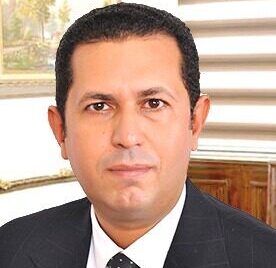BRICS: A rising force that promotes a fairer world order

The world is witnessing radical transformations in the balance of economic and political power, especially with major powers competing to shape the new global order.
The BRICS group emerges at the heart of this struggle, turning into a key player that seeks to create a more just and balanced world.
The world’s eyes turn towards this promising group, as it holds its first summit after expansion in the Russian city of Kazan, given its immense potential to change the course of history.
The BRICS group is distinguished by strong economic fundamentals that qualify it to be a major player in global governance in the future.
Its member states include the largest consumer markets in the world, the largest natural resources’ reserves, and the fastest-growing economies.
BRICS states increasingly contribute to the global GDP and represent a huge purchasing power that attracts foreign direct investments, according to recent studies and research.
The influence of BRICS is not limited to numbers and statistics, but extends to the lives of ordinary people.
For example, joint infrastructure projects by BRICS member countries contribute to improving the livelihoods of millions of people in the developing world by providing new jobs and improving access to basic services, such as electricity and clean water.
Co-operation in the field of agriculture also contributes to increasing productivity and reducing hunger and poverty.
The rise of BRICS resembles the rise of other global powers in the past, such as the United States after World War II.
Both benefited from favourable international conditions and built their strength on strong economic foundations and great political ambitions.
However, there are also important differences. BRICS is based on a diverse foundation of political systems, economies, and cultures, making it more flexible and able to adapt to changing challenges.
Despite its immense potential, BRICS faces significant challenges, such as differences in political and economic systems, regional competition, and disparities in development levels.
Nonetheless, these challenges do not diminish the importance of BRICS. They rather serve as an incentive for it to develop more effective co-operation mechanisms.
BRICS enjoys vast opportunities for co-operation in the fields of energy, technology, and agriculture, building joint infrastructure, and developing integrated financial markets.
The rising bloc can also play a pivotal role in achieving the sustainable development goals, by combating poverty, improving health and education, and protecting the environment.
Possible scenarios for the future development of this bloc are multiple and complex. Its future success will depend on its ability to overcome internal challenges, strengthen co-operation among member states, and take advantage of available opportunities.
It will also depend on its interaction with other global powers and the building of strategic partnerships with them.
The emergence of BRICS as a rising global power represents a milestone in international relations.
BRICS offers an alternative model of global governance, based on multilateralism and co-operation, prioritising the interests of developing countries.
As it continues to evolve, BRICS will play a decisive role in shaping the new global order and contributing to building a more just and prosperous world.
Mohamed Fahmy is the editor-in-chief of The Egyptian Gazette and Egyptian Mail newspapers [email protected]

